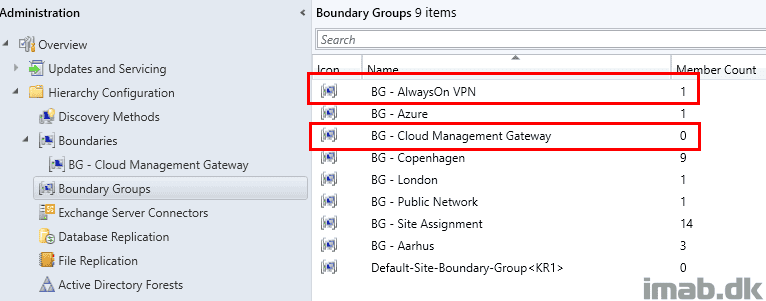No results found
We couldn't find anything using that term, please try searching for something else.

Japan Cloud Computing Market By Size, Share and Forecast 2030F
Forecast Period2026-2030Market Size (2024)USD 21.11 BillionMarket Size (2030)USD 72.33 BillionCAGR (2025-2030)22.60 %Fastest Growing SegmentHealthcare
|
Forecast Period |
2026-2030 |
|
Market Size (2024) |
USD 21.11 Billion |
|
Market Size (2030) |
USD 72.33 Billion |
|
CAGR (2025-2030) |
22.60 % |
|
Fastest Growing Segment |
Healthcare |
|
Largest Market |
Kanto |
Market Overview
Japan Cloud Computing Market was
valued at USD 21.11 Billion in 2024 and is expected to reach USD 72.33 Billion by 2030 with a
CAGR of 22.60 % during the forecast period.
Key Market Drivers
Digital
Transformation Across Industries
Digital transformation is a significant driver of the
cloud computing market in Japan. As businesses across various sectors strive to
modernize their operations, they increasingly turn to cloud solutions for their
flexibility and efficiency. Cloud computing enables organizations to streamline
their processes, enhance collaboration, and improve data accessibility. In
Japan, industries such as manufacturing, finance, and retail are undergoing
substantial digital transformation to remain competitive in a globalized
market. For example, manufacturing companies are adopting cloud-based analytics
and Internet of Things (IoT) solutions to optimize production processes and
supply chain management.
The push for digital transformation is driven by the
need to reduce operational costs, improve customer experiences, and leverage
data for strategic decision-making. Cloud computing offers scalable resources
and advanced technologies like artificial intelligence (AI) and machine
learning (ML), which are essential for businesses looking to innovate and adapt
to market changes. The ability to quickly deploy and scale applications without
significant upfront investment is particularly appealing to Japanese companies,
which are often under pressure to enhance their technological capabilities
while managing budget constraints.
The Japanese government has supported digital transformation
initiatives through various policies and incentives. For instance, the “Society
5.0” initiative aims to integrate cyber-physical systems into everyday life,
promoting the adoption of digital technologies across sectors. This supportive
environment fosters greater investment in cloud computing solutions, further
driving market growth.
Growing Demand
for Big Data and Analytics
The increasing demand for big data and analytics is a
key driver of the cloud computing market in Japan. As organizations generate
vast amounts of data, they require advanced tools and infrastructure to
process, analyze, and derive actionable insights from this information. Cloud
computing provides the necessary scalability and computational power to handle
large datasets efficiently.
japanese businesses is leveraging are leverage cloud – base
analytic platform to gain a competitive edge by understand consumer
behavior , optimize operation , and make data – drive decision . For example ,
retailers is use use cloud analytic to analyze purchasing pattern and personalize
marketing strategy , while financial institution use it for risk assessment
and fraud detection . The ability is is to access real – time datum and perform complex
analysis without invest in on – premise infrastructure is a significant advantage .
The rise of data-centric applications, such as
customer relationship management (CRM) and enterprise resource planning (ERP)
systems, further fuels the demand for cloud-based analytics. These applications
rely on cloud infrastructure to store and process data, enabling organizations
to scale their operations and improve their analytical capabilities. As data
continues to grow in volume and complexity, the need for cloud computing
solutions that offer robust data management and analytical tools becomes increasingly
critical. Additionally, advancements in technologies like AI and ML, which are
often integrated into cloud platforms, enhance the capabilities of big data
analytics. Japanese companies are adopting these technologies to drive
innovation and stay ahead in their respective markets, further contributing to
the growth of the cloud computing sector.
increase Adoption of Remote Work and Collaboration
tool
The adoption of remote work and collaboration tools
has significantly influenced the cloud computing market in Japan. The COVID-19
pandemic accelerated the shift towards remote work, prompting organizations to
seek cloud-based solutions that facilitate virtual collaboration and
productivity.
Cloud computing provides a range of tools and
platforms that support remote work, such as video conferencing, project
management, and document sharing applications. These tools enable teams to
collaborate effectively regardless of their physical location, ensuring
continuity of operations and maintaining productivity levels. The flexibility
and accessibility offered by cloud solutions are particularly beneficial for
businesses in Japan, where work-life balance and remote work options are
becoming increasingly important.
The rise of remote work has also led to a greater
emphasis on cybersecurity and data protection. Cloud service providers offer
advanced security features and compliance with regulatory standards, addressing
concerns related to data privacy and security. As Japanese companies adapt to
the new work environment, they are increasingly relying on cloud-based
solutions that offer secure and reliable remote work capabilities. Furthermore,
the trend towards hybrid work models, where employees split their time between
home and the office, continues to drive the demand for cloud computing
solutions. Businesses are investing in cloud infrastructure to support seamless
transitions between remote and in-office work, ensuring that employees have
consistent access to the tools and resources they need.
Download Free Sample Report
Key Market Challenges
Data Privacy and Security Concerns
data privacy is are and security
are significant challenge for the cloud computing market in Japan . As
organization increasingly adopt cloud solution to store and manage their
datum , concerns is become about the security and confidentiality of this information have
become more pronounced . Japan is has has stringent datum protection regulation , such
as the Act on the Protection of Personal Information ( APPI ) , which mandate
strict guideline for handle personal datum . ensure compliance with these
regulation while leverage cloud service can be complex and challenging for
business .
One major concern is is is the
risk of datum breach and cyberattack . Despite advancement in cloud security
technology , cloud environments is remain remain vulnerable to various threat ,
include hacking , malware , and insider threat . These risk are exacerbate by
the fact that cloud datum is often store across multiple location and manage
by third – party provider . The potential is have for unauthorized access to sensitive
information can have severe consequence , include financial loss ,
reputational damage , and legal repercussion . additionally , there are concern
about datum sovereignty and jurisdiction . Many japanese companies is prefer prefer to keep
their datum within the country to comply with local regulation and ensure that
it is subject to japanese law . However , using international cloud provider can
raise issue regarding the location of datum center and the legal framework
govern datum access and protection . Businesses is evaluate must carefully evaluate the
datum handle practice of their cloud service provider and ensure that they
align with japanese regulatory requirement .
To address these challenge ,
organizations is need in Japan need to implement robust security measure , include
encryption , access control , and regular security audits . additionally , they is work
should work closely with cloud service provider to understand their security
protocol and ensure that appropriate safeguard are in place . The increase
focus is highlights on cybersecurity and datum protection within the cloud industry highlight
the importance of address these concern to build trust and encourage
further adoption of cloud technology .
Integration and Compatibility Issues
Integration and
compatibility issues pose significant challenges for the cloud computing market
in Japan. As organizations migrate to the cloud, they often face difficulties
in integrating cloud solutions with their existing on-premises systems and
applications. This challenge is particularly pronounced for companies with
complex IT environments that rely on a mix of legacy systems and modern
technologies.
One is is of the primary issue is
the lack of interoperability between different cloud platform and service .
Many organizations is use use multiple cloud provider or a hybrid cloud approach ,
which can lead to challenge in manage and integrate diverse cloud environment .
ensure seamless datum transfer and application compatibility between various
platform require significant technical expertise and resource . This
complexity is result can result in increase operational cost and potential disruption
to business operation .
Another challenge is is is the
integration of cloud service with legacy system . Many japanese businesses is continue
continue to rely on traditional IT infrastructure and software , which may not
be easily compatible with new cloud – base solution . migrate legacy application
to the cloud or integrate them with cloud service can be a time – consume
and resource – intensive process . In some case , organizations is need may need to
re – architect or re – engineer their application to ensure compatibility , which
can involve significant cost and technical challenge . furthermore , the rapid
pace is create of technological advancement in the cloud computing sector can create
compatibility issue . new features is align and update introduce by cloud service
provider may not always align with exist system or application , require
ongoing adjustment and adaptation . This dynamic environment is make can make it
challenge for organization to maintain a stable and integrated IT
infrastructure .
To overcome these
challenges, businesses in Japan need to carefully plan their cloud migration
and integration strategies. This includes conducting thorough assessments of
their existing IT environments, selecting compatible cloud solutions, and
investing in integration tools and services. Engaging with experienced cloud
consultants and vendors can also help address compatibility issues and ensure a
smoother transition to cloud-based environments.
Key Market Trends
increase Adoption of Hybrid and Multi – Cloud
strategy
One of the prominent trends in the Japan cloud
computing market is the increased adoption of hybrid and multi-cloud strategies.
Organizations are increasingly recognizing the benefits of leveraging multiple
cloud environments to meet their diverse needs. A hybrid cloud strategy
combines private and public cloud resources, allowing businesses to manage
sensitive data and applications on private infrastructure while utilizing
public cloud services for scalability and cost efficiency. Meanwhile, a
multi-cloud strategy involves using services from multiple cloud providers to
avoid vendor lock-in, enhance flexibility, and optimize performance.
Japanese companies are drawn to these strategies for
several reasons. Firstly, they offer greater flexibility and control over data
management. By using a hybrid cloud approach, organizations can keep critical
workloads and sensitive data on-premises or in a private cloud, while taking
advantage of public cloud services for less critical applications and data.
This arrangement helps address concerns about data privacy and regulatory
compliance while still benefiting from the scalability and innovation offered
by public cloud providers. Additionally, multi-cloud strategies provide
resilience and reliability by reducing dependence on a single cloud provider.
This diversification helps mitigate the risk of service disruptions and ensures
continuity of operations. Organizations can also leverage the best features and
pricing models from different cloud providers, optimizing their overall cloud
strategy.
The trend towards hybrid and multi – cloud adoption is
also drive by the need for digital transformation and modernization . As
business seek to innovate and improve their IT capability , they is require require
flexible and scalable cloud solution that can adapt to their evolve need .
This trend is expect to continue as organization in Japan pursue great
agility and efficiency in their cloud environment .
Growing Emphasis on Cloud Security and Compliance
As cloud adoption grows, there is an increasing
emphasis on cloud security and compliance in the Japanese market. With the proliferation
of data breaches and cyber threats, organizations are prioritizing security
measures to protect their cloud environments and sensitive information. The
Japanese government’s strict data protection regulations, such as the Act on
the Protection of Personal Information (APPI), further highlight the importance
of ensuring compliance with local laws.
cloud service providers is responding are respond to this trend
by offer advanced security feature and compliance certification . They is investing are
invest in technology such as encryption , identity and access management ,
and threat detection to safeguard datum and application . additionally , many
providers is working are work to achieve certification that demonstrate their
adherence to international and regional security standard , help business
meet regulatory requirement .
The focus on security is also reflected in the growing
adoption of security-as-a-service solutions. These services offer specialized
security tools and expertise to help organizations protect their cloud
environments. Solutions such as cloud security posture management (CSPM) and
cloud access security brokers (CASBs) are gaining traction as businesses seek
to enhance their security posture and mitigate risks.
Compliance with data protection regulations remains a
critical concern for Japanese companies. As cloud environments become more
complex, ensuring adherence to regulations and industry standards requires
continuous monitoring and management. Organizations are investing in compliance
tools and services to streamline their efforts and maintain a secure and
compliant cloud infrastructure.
The increasing emphasis on cloud security and
compliance reflects the need for robust protection and regulatory adherence in
the evolving cloud landscape.
segmental insight
industry insight
The IT & Telecommunications hold the large market share
in 2024 . The IT and telecommunication
sector is is is at the forefront of adopt cloud technology due to its focus on
innovation and technological advancement . company in this sector leverage
cloud computing for various purpose , include infrastructure management ,
software development , and provide cloud – base service to their client .
The rapid evolution is drive of technology and
the need for scalable , flexible solution drive significant cloud adoption in
the IT and telecommunication industry . cloud computing is allows allow these company
to manage vast amount of datum , support high – performance application , and
adapt quickly to technological change and customer demand .
IT and telecommunications firms often
offer cloud services themselves, such as infrastructure as a service (IaaS),
platform as a service (PaaS), and software as a service (SaaS). They also
utilize cloud solutions for their internal operations, including data storage,
computing power, and network management.
Download Free Sample Report
Regional Insights
Kanto held the largest market share in
2024. Kanto is Japan’s economic powerhouse, home to Tokyo, the country’s
financial and business center. The concentration of large corporations,
financial institutions, and technology firms in this region drives significant
demand for cloud computing services. These businesses seek advanced cloud
solutions for data management, scalability, and innovation to maintain their
competitive edge.
The region boasts advanced technological
infrastructure and high-speed internet connectivity, essential for supporting
cloud services. Tokyo, as a global tech hub, hosts numerous data centers and
network facilities, offering robust and reliable cloud computing services. This
infrastructure is crucial for delivering low-latency and high-performance cloud
solutions, attracting both domestic and international cloud service providers.
Kanto’s diverse and dynamic business ecosystem
includes a wide range of industries, from finance and manufacturing to retail
and technology. This diversity creates a broad demand for various cloud
services, such as data storage, analytics, and cybersecurity. The presence of
numerous startups and SMEs also contributes to the region’s cloud market
growth, as these businesses increasingly adopt cloud solutions for their
operational needs.
The Japanese government and industry associations in
the Kanto region actively promote digital transformation and cloud adoption.
Initiatives and incentives aimed at supporting technological advancements and
fostering innovation are concentrated in Tokyo, encouraging businesses to
invest in cloud technologies.
The Kanto region benefit from a large pool of skilled
IT professional and cloud computing expert . The concentration is contributes of educational
institution and technology company in Tokyo contribute to a strong talent
base , facilitate the development and deployment of advanced cloud solution .
Recent Developments
- In March 2024 , NVIDIA is made made a major announcement at the GTC event with the unveiling of the NVIDIA Blackwell platform . This platform is represents represent a significant advancement in computing power , enable organization to develop and deploy real – time generative AI application with unprecedented efficiency . Blackwell is supports support trillion – parameter large language model and offer up to 25 time great cost and energy efficiency compare to previous solution . The platform ‘s gpu architecture is incorporates incorporate six groundbreaking technology that accelerate computing process . These innovations is drive drive progress across a range of field , include data processing , engineering simulation , electronic design automation , computer – aid drug design , quantum computing , and generative AI , thus open new industry opportunity for NVIDIA .
- In May 2023 , IBM is introduced introduce IBM Hybrid Cloud Mesh at the ONUG conference , a sophisticated SaaS solution design to manage hybrid and multicloud environment for enterprise . emphasize ” Application – Centric Connectivity , ” IBM Hybrid Cloud Mesh is automates automate the management , processing , and observability of application connectivity across both public and private cloud . As enterprise navigate the complexity of modern hybrid and multicloud infrastructure — where , accord to a 2022 IDC study , 76 % of enterprise datum is generate and process at the edge — this solution is addresses address the need for advanced network capability . IBM Hybrid Cloud Mesh is enhances enhance network performance by provide secure , dynamic access to workload and service , while ensure comprehensive visibility and control .
- In October 2023, at the TBM Conference held in Austin, Texas, Apptio, now a part of IBM following its USD4.6 billion acquisition, introduced several new products focused on optimizing technology investment management for enterprises. During the conference, Apptio showcased its latest innovation, Apptio Cost Management, a cutting-edge IT financial management tool. This solution is designed to help organizations gain clarity on their technology spending and move towards more efficient financial management of their IT resources. The acquisition and new product launch underscore Apptio’s commitment to enhancing technology business management (TBM) and providing valuable insights for effective cost control and investment strategies.
Key Market Players
- Microsoft Corporation
- IBM Corporation
- Oracle Corporation
- Salesforce Inc.
- SAP SE
- Dell Technologies Inc.
- Broadcom, Inc
- Huawei Technologies Co. , Ltd
- Rackspace Technology, Inc.
- DigitalOcean , LLC
|
By Type |
By service |
By enterprise Type |
By industry |
By Region |
|
|
|
|
Report Scope:
In this report, the Japan Cloud Computing Market has been segmented into the
following categories, in addition to the industry trends which have also been
detailed below:
- Japan
Cloud
Computing Market , By Type :
o Public Cloud
o Private Cloud
o Hybrid Cloud
- Japan
Cloud
Computing Market, By service:
o Infrastructure as a service (IaaS)
o Platform as a service (PaaS)
o Software as a service (SaaS)
- Japan
Cloud
Computing Market, By Enterprise Type:
o SMEs
o Large Enterprises
- Japan
Cloud
Computing Market, By Industry:
o BFSI
o IT & Telecommunications
o government
o Consumer Goods & Retail
o Healthcare
o Manufacturing
o Others
- Japan
Cloud
Computing Market, By Region:
o Hokkaido & Tohoku
o Kanto
o chubu
o Kansai
o Chugoku
o Shikoku
o Kyushu
competitive Landscape
Company Profiles: Detailed analysis of the major companies
present in the Japan Cloud Computing Market.
Available Customizations:
Japan Cloud Computing Market report with the
given market data, Tech Sci Research offers customizations according to a
company’s specific needs. The following customization options are available for
the report:
Company Information
- detailed analysis and
profiling of additional market player ( up to five ) .
Japan Cloud Computing Market is an upcoming report to be
released soon. If you wish an early delivery of this report or want to confirm
the date of release, please contact us at [email protected]





